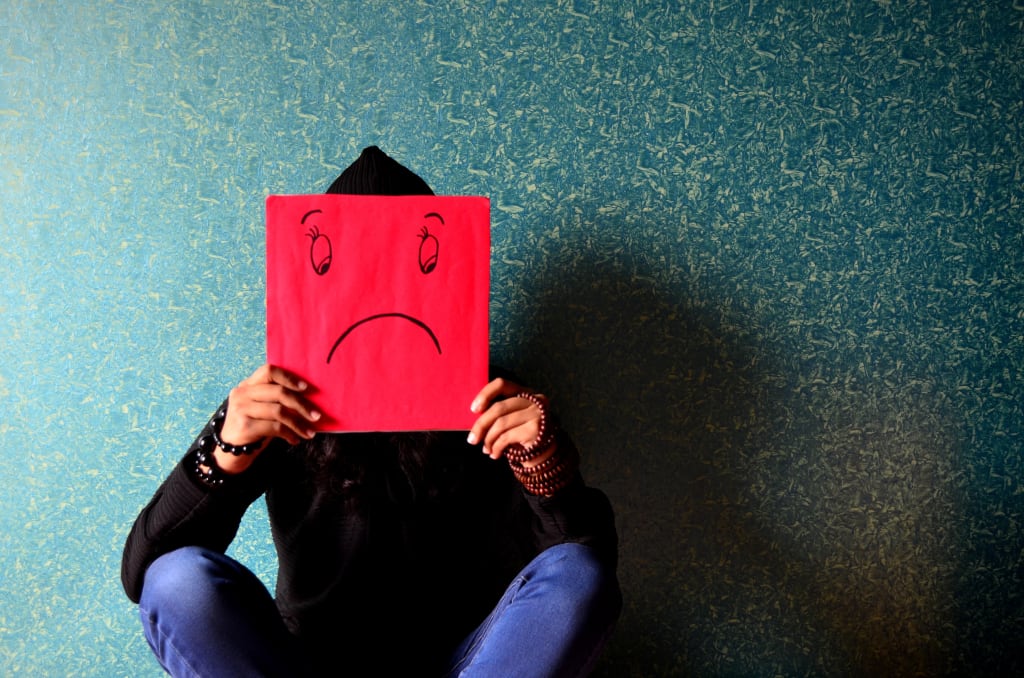
Most times when we as a society talk about grief and loss, we seem to be mainly focusing on death. It has always been interesting to me that we seem to be more comfortable grieving the universe's physical loss of a human life form than expressing grief for a lost emotional connection, or "other" grief. It is certainly easier to express, and therefore justify living with the concept of "physical loss" grief, because universally, it is said that the loss of a human life is sad. Death is always sad and you are supposed to be sad when someone dies. If you're supposed to be sad, I guess you're allowed to grieve, and when you're allowed to do something, it can be a lot easier.
I find that lately, I use the phrase "grieving" a lot in my day to day life. I've caught myself saying things like "I think I still need to grieve that loss" or "I'm in a bit of a grieving period." At one point, these sentences coming out of anyone else's mouth would have induced a heavy eye roll, but it has both taken power away from "physical loss" grief and empowered me to be comfortable with "other" grief all at the same time. I used to be afraid of grief; I saw grief as this heavy and long emotional process. I didn't think I had ever felt real grief, nor did I want to; I new all about those cliche 5 steps and I didn't want to set foot into a single one. Little did I know, grief is a normal human emotion, one I had felt and continue to feel more than I could have ever imagined. The more I have felt grief, the more I refuse to let it be a negative thing. Grief is what you feel after a loss. Period. Losses are completely personal, and you can grieve whatever the hell loss you want to. Isn't that a concept? Not telling people how or when to feel their feelings?
Think of it this way: My sister loves ketchup, puts it on all kinds of food, even spaghetti. Yes, I know what you're thinking, and our mom is Italian, so she knows too. She used to wear a shirt that says "I put ketchup on my ketchup." I think she even felt a bit of pride being 'that ketchup kid' when we were growing up. In high school, when I was a cheerleader, there was a girl on my squad who was terrified of ketchup. Yes, you read that right. She was afraid of ketchup. She didn't like to see it, have it near her, and especially not eat it. One evening, tumbling on the sidelines of our high school football game, it was pointed out to her that she had done her left split into a hot dog wrapper with some ketchup on it. I watched this peppy, confident young woman crumble into a million pieces on the ground. She screamed in agony and looked as if she was writhing in pain as her friends pinned her to the ground to wipe the ketchup from her skin as quickly as possible. My first reaction as the small-minded and judgmental teenager I was (we all were, at some point) was, "How ridiculous! It's ketchup! It's sugary tomatoes! What the hell is wrong with her!" But later in life it dawned on me; I have no idea why she fears ketchup and there's a good chance she doesn't either. What she feels about ketchup and how she processes that feeling is none of my business, and, other than making me want to comfort her/make sure she is okay, does not and should not impact me in the slightest. Her feelings are not hurting anyone or herself and she is dealing with them the best she can.
So you see, if we think of the feeling of grief like the fear of ketchup, we might get somewhere.
I hadn't really dabbled in the concept of grief until around the age of eighteen. That was the first time someone I knew, and unfortunately, it was someone my age, had died. Everyone around me was absolutely rocked by this loss, and in the following years, the tragic deaths of young people in my town just kept happening. One after the other, multiple times per year. I had no experience losing anyone through death EVER until the year I turned eighteen. Not even an old relative. I felt absolutely helpless; I didn't know what to say to anyone who was hurt by these losses of precious life, as I'd never experienced such loss.
I had, however, experienced a lot of loss that was significant to me, it just wasn't through death. So now you would expect me to say, "so I DID have experience with grief all along!" but alas, I wouldn't say that at all. Despite my experience with loss, significant loss at that, I still had no skills in grieving or supporting grief; I didn't grieve any of the losses I had felt previously, as I wasn't given the permission to do so. No one encourages a 14 year old girl to grieve her first breakup, or not making the basketball team. You don't grieve the loss of your best friend when she leaves you for cooler friends in the first month of high school; she didn't die, so why would you feel grief? Move on! Get over it! Live your life! One door closes, another one opens!
When someone dies, no one says "get over it" or "time to move on" right after, because that would be rude and disrespectful to those in mourning. So why isn't it rude and disrespectful to say "move on" to a heartbroken teenager? Or the guy who didn't get his dream job? Or the woman with the new Type I Diabetes diagnosis? Is their process not important? Do they not have a right to be as upset with their whole life courses being changed, just because no one is dead? The loss of my job may be more impact-full to me than the loss of my 99 year old Great Grandmother, and you can't say anything about it. Maybe my great grandmother was super mean to me and I place a lot of value in my position at work. Why should I be obligated to take the time to process my mean old granny dying but have to "get right back out there" when I get demoted from team lead to front line staff? What's more, why should I have to take time to sit at home and be alone with my sad and scary thoughts to grieve? Why is the woman who goes out to dance the night away "not taking this well," but the woman who sits at the dinner table with her in-laws wanting to kill herself "taking the proper time to grieve with family?"
We cannot compare loss, and we cannot tell people how to feel their feelings. That means that other people's grief is none of our business. Ever. For anyone except you. And our grief is totally our call. Supporting others to feel grief is really just allowing them to do what they need to do and take what time they need following a loss, as long as we are not worried they are a danger to themselves or others. We all feel our emotions for different reasons, and grief is no different. A free subway sandwich may be a total life changer to one person and an insult to another who HATES salami. A video about clown dolls could insight great joy for people that like clowns (for some weird reason) and absolute terror for others. Grief is not good or bad, it is not 5 stages, it is not only a reaction to death. Grief is a normal emotion, and if we treated it as such, we wouldn't have to get stuck in it anymore.
About the Creator
Hannah B
Mom, self proclaimed funny girl, and publicly proclaimed "piece of work".
Lover and writer of fiction and non-fiction alike and hoping you enjoy my attempts at writing either.






Comments
There are no comments for this story
Be the first to respond and start the conversation.